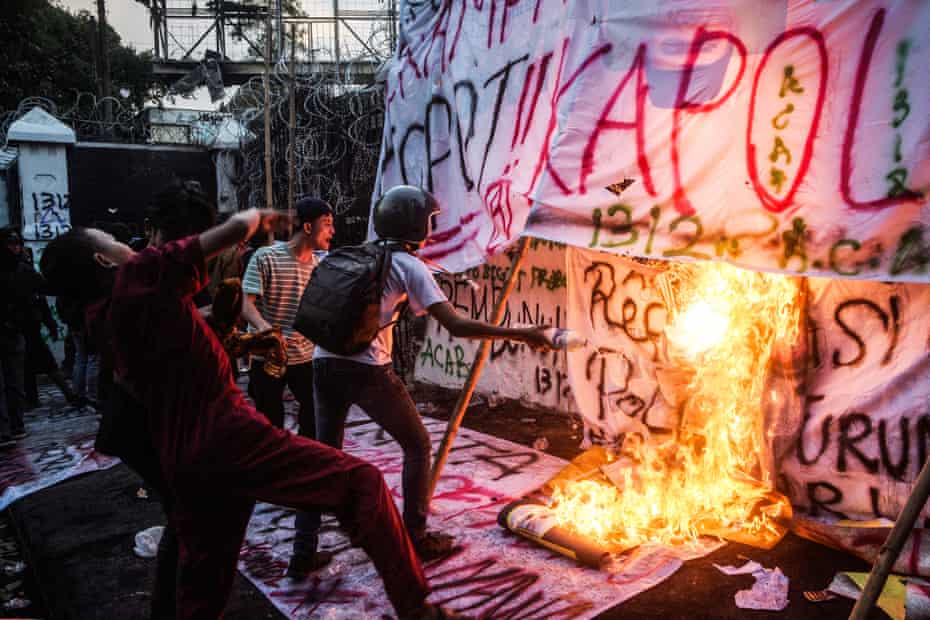At least 20 people are missing and six confirmed dead following violent protests that have swept across Indonesia for more than a week, a human rights group has said.
The demonstrations began on 25 August in response to anger over the lavish perks and benefits enjoyed by lawmakers, including a controversial housing allowance. Tensions escalated sharply after a 21-year-old motorcycle taxi driver, Affan Kurniawan, was killed when he was run over by a police vehicle at a protest site.
The Commission for the Disappeared and Victims of Violence (KontraS) said on Sunday that it had verified 20 reports of missing persons from the wider Jakarta area as well as the city of Bandung. One disappearance was recorded in an undisclosed location.
Read Also: Volcanic eruption grounds Bali flights as Indonesia issues highest alerts
“Based on public reports submitted to Kontras of September 1, there were 23 reports of missing persons. After the search and verification process, 20 missing persons remain unfound,” the group said in a statement.
The unrest has spread across the archipelago. In Jakarta, hundreds of protesters returned to parliament on Monday, where police had erected checkpoints and deployed snipers. Schools and universities in the capital switched to online classes, while civil servants were told to work from home.
Elsewhere, demonstrations turned violent. In Gorontalo, on Sulawesi island, police fired teargas and water cannon to disperse crowds. In Bandung, protesters threw molotov cocktails and firecrackers at the provincial council building. Thousands rallied in Palembang on Sumatra, while smaller protests took place in Banjarmasin on Borneo, Yogyakarta on Java, and Makassar on Sulawesi.
President Prabowo Subianto has promised an investigation into the killing of Kurniawan and confirmed that seven police officers have been detained. On Monday, police officials said two of them were found to have committed criminal acts and could face dismissal.
The United Nations has called for an inquiry into the security forces’ response. “All security forces, including the military when deployed in a law enforcement capacity, must comply with the basic principles on the use of force and firearms by law enforcement officials,” said UN human rights office spokesperson Ravina Shamdasani.
The unrest has forced the government to make rare concessions. On Sunday, Prabowo announced that political parties had agreed to cut some lawmakers’ perks, including the housing allowance of 50m rupiah (£2,425), which had become a focal point of public anger.
But the president also struck a stern tone, warning: “When demonstrations turn anarchic, destroying public facilities, endangering lives and attacking private homes or public institutions, this becomes a serious violation of law.”
Several state buildings and the homes of political figures, including that of the finance minister, Sri Mulyani Indrawati, have been looted or set ablaze in the turmoil.



